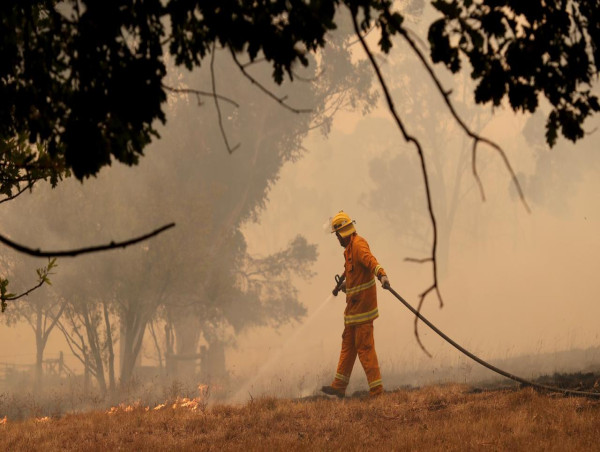More investment in prevention and preparedness to deal with the expected increase in climate-driven natural disasters is critical, a Senate committee has been told.
South Australian Country Fire Service Chief Officer Brett Loughlin says a greater emphasis on prevention and preparing for major events would reduce the subsequent response requirements from emergency agencies.
He says this would translate to fewer deployments by the Australian Defence Force and more sustainable state-led operations.
"In South Australia alone, we've had eight level three incidents, the most complex and damaging of fire events in the past 10 years. Four of those have been in the past three fire seasons," Mr Loughlin said in his evidence on Friday.
"However, the paradigm remains firmly as one of response.
"We know the issues, we know what is coming so investment in prevention and preparedness is absolutely critical."
Mr Loughlin said the CFS strived to give equal weight to prevention, preparedness, response and recovery but the reality remained that its resources were limited and its work was "heavily weighted" towards response.
That reality should also be viewed in the context of an increasing number of major events including the devastating fires of 2019/20 which raged across NSW, Victoria and South Australia.
Mr Loughlin said the unprecedented scale of those fires "did take things to breaking point".
But he said no matter what action was taken, there would always be limits on resources.
"The reality is, with the changing climate and the ever-increasing operational tempo, we will see that same nationwide impact again," Mr Loughlin said.
"It's likely that no matter how many resources you put into that space, you will reach a point where you don't have enough to go everywhere at every given time."
The Senate Select Committee on Australia's Disaster Resilience was established in November last year to inquire into Australia's preparedness, response and recovery workforce models, as well as alternative models to disaster recovery.
In a series of public hearings across the country, the committee has been investigating the role of the ADF, volunteer groups, not-for-profit organisations and state-based services, and the support required to improve Australia's resilience and response to natural disasters.
It is due to hand down its final report in September.
In other evidence on Friday, SA State Emergency Service Chief Officer Chris Beattie also spoke of the growing impact of severe weather.
He said the number of callouts received by the SES had increased year-on-year over the past 25 years and had jumped from about 2500 in 2019 to about 10,000 in the past year.
"Clearly we are seeing more frequent weather events calling on our members," he said.



